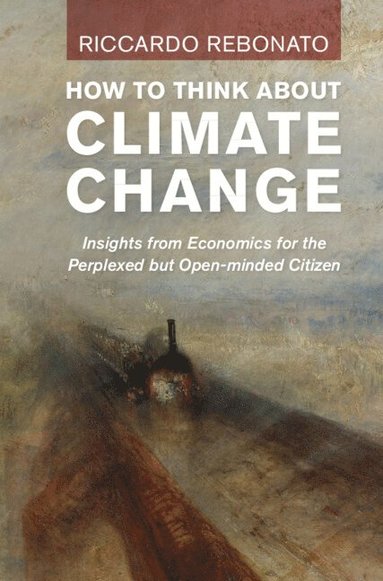
- Format
- Inbunden (Hardback)
- Språk
- Engelska
- Antal sidor
- 360
- Utgivningsdatum
- 2024-01-25
- Förlag
- Cambridge University Press
- Dimensioner
- 231 x 155 x 28 mm
- Vikt
- Antal komponenter
- 1
- ISBN
- 9781009405003
- 658 g
How To Think About Climate Change
Insights from Economics for the Perplexed but Open-minded Citizen
- Skickas från oss inom 7-10 vardagar.
- Fri frakt över 249 kr för privatkunder i Sverige.
Passar bra ihop
De som köpt den här boken har ofta också köpt Technological Republic av Alexander C Karp, Nicholas W Zamiska (häftad).
Köp båda 2 för 556 krKundrecensioner
Fler böcker av författarna
-
Volatility and Correlation
Riccardo Rebonato
-
Coherent Stress Testing
Riccardo Rebonato, Rebonato
-
SABR/LIBOR Market Model
Riccardo Rebonato, Kenneth McKay, Richard White, Riccardo Rebonato, Kenneth McKay
-
Modern Pricing of Interest-Rate Derivatives
Riccardo Rebonato
Övrig information
Riccardo Rebonato is Professor of Finance at EDHEC and Scientific Director at the EDHEC Risk Climate Institute. He worked as a researcher at the nuclear research reactor at the Institut Laue Langevin, at Brookhaven National Laboratory and at Oxford University and has authored 11 books and 50 articles on finance, risk management and political economics. He is a current Board member of Nine Dots Prize with Cambridge University Press and a former Board member of ISDA and GARP.
Du kanske gillar
-
Peak Human
Johan Norberg
Inbunden -
Orbital
Samantha Harvey
Häftad -
Peak Human
Johan Norberg
Häftad -
Atomic Habits
James Clear
Trade paperback (UK)


